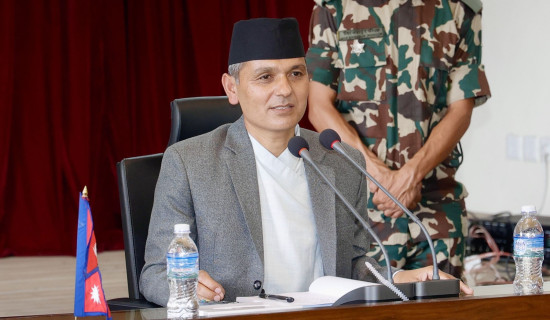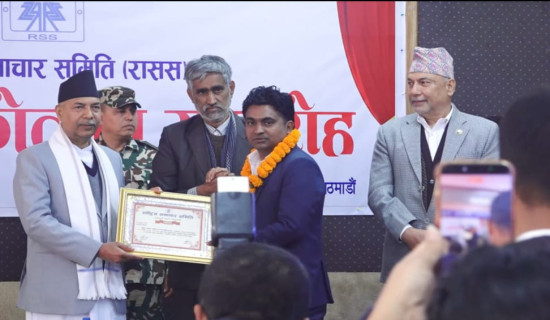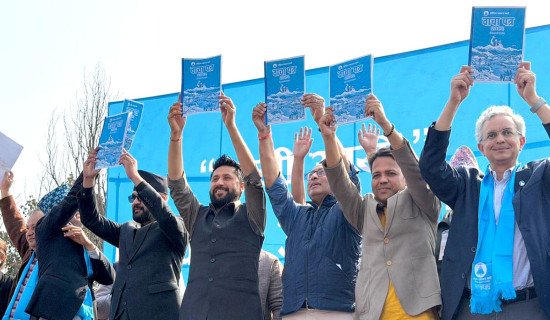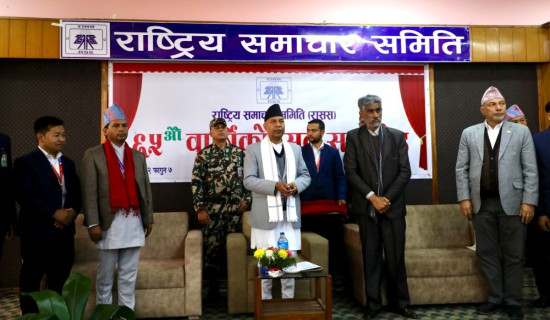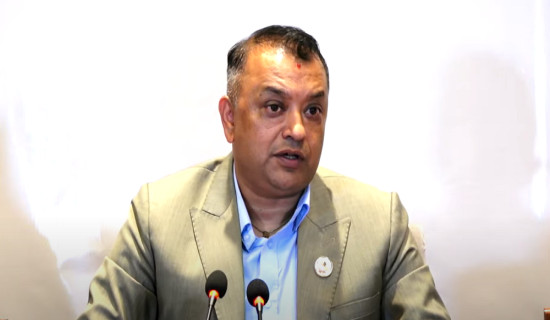- Friday, 20 February 2026
KMC Putting A Ban On Tobacco Again
The Kathmandu Metropolitan City (KMC) has once again come up with a plan to put a ban on smoking in public places across its jurisdiction in order to improve public health and safety. Unveiling the KMC’s policy and programmes for the fiscal year 2024-25 recently, Mayor Belendra Shah announced it. This is a welcome move as it can contribute towards preventing people from various diseases. Health specialists say that use of tobacco can cause various types of cancer, including chronic lung cancer and throat cancer, stroke, heart disease and diabetes. This step can also help contain pollution and beautify the city.
Tobacco is a significant risk factor for numerous non-communicable diseases. This is the world’s major cause of preventable deaths. Tobacco kills about eight million people globally every year. In Nepal, more than 27,000 people lose their lives due to tobacco use every year. The number of deaths could go up in the years to come if the trend of tobacco use continues.
Health hazards
Taking tobacco’s health hazards into account, the KMC as well as several other local governments have taken the initiative to discourage people from using tobacco. But none of them appears to have been successful in their mission. As per the Clause 42 of the existing Public Health Act, the KMC had decided to ban the sale of tobacco products, including those packed in plastics from December 13 last year. The KMC had prohibited the sale and distribution of tobacco products packaged in plastic bags and the retail sale of cigarettes. The metropolis had also planned to impose a fine of Rs. 100 for smoking within 100 metres of public places to discourage use of tobacco.
When the KMC made an announcement to ban the use of tobacco, it gave three reasons which included adverse impacts on the public health, the environment and the sewer system and drains. Clogs of plastic wrappings are often found blocking the sewer system and drains. But the decision could not be implemented as the Patan High Court issued an interim order as sought by a tobacco firm, staying the KMC’s decision.
The court mentioned that there was no justifiable reason for the local government to impose a ban on tobacco products as tobacco companies were preparing for packing tobacco in biodegradable packages. It also forwarded the logic that tobacco firms were operating responsibly, generating revenue and paying taxes. Thus, the court reasoned that putting a ban on such products may have adverse effects on the industrial system and cause irreparable loss to the industry and the nation. In the budget for the fiscal year 2023-24, the government had made its plans public to introduce policy reforms for arranging packaging of biodegradable organic products. The tobacco companies had also claimed to have made additional investments and preparations in tandem with that policy.
Growing advertisement highlighting tobacco products is one of the factors contributing to increase in the number of tobacco users in the country. The Nepal Demographic and Health Survey-2022 shows athat about 28 per cent of male and five per cent female smoke tobacco. According to the survey, about 17 per cent of men smoke on a daily basis. Over the past seven years or so, the KMC has made its announcements to ban the sale and consumption of tobacco products in public places for several times. The local government had decided to implement a ban on smoking in public places in 2019, 2018 and 2016. But the metropolis has been unable to implement its decision regarding this due to pressure from the tobacco industry.
Many people are found consuming tobacco products, especially cigarettes, in public places without any hesitation. This not only harms the health of users but also others staying or walking nearby. While visiting parks or heritage sites, one can see people belonging to different age groups puffing on a cigarette. Such smokers are rarely found sensitive towards the health of others. So, the KMC’s step to outlaw smoking in public places is expected to bring cheers to non-smokers.
According to researches, tobacco smoke contains as many as 7,000 chemicals, made up of particles and gases. Of them, more than 70 are known to cause different forms of cancer. Passive smokers, especially children and elderly people, are also at higher risk of suffering from asthma, bronchitis and pneumonia. When one lives with someone who smokes, s/he may have a higher risk of diseases like as lung cancer, heart disease and stroke. Various chemicals found in second-hand smoke like anomia, sulphur and formaldehyde cause damage to eyes, nose, throat and lungs. Such compounds are reported to be injurious to those living with lung problems like bronchitis and asthma, and exposure to second-hand smoke can worsen symptoms.
Public awareness
The KMC must enforce its plan rigorously in order to make it a success. Legal action must be taken against those found selling or distributing the outlawed products within the metropolis. The consumers who are not seen abiding by law should also be brought to book. An enforcement of law alone is not sufficient to deal with this problem. So, raising public awareness among people about various adverse effects of tobacco use on their health is equally important.
Once the KMC emerges as model in terms of restricting the use of tobacco in public places, other local governments from across the nation will follow suit. This campaign must gain ground to improve public health.
(The author is a former deputy executive editor of this daily.)











